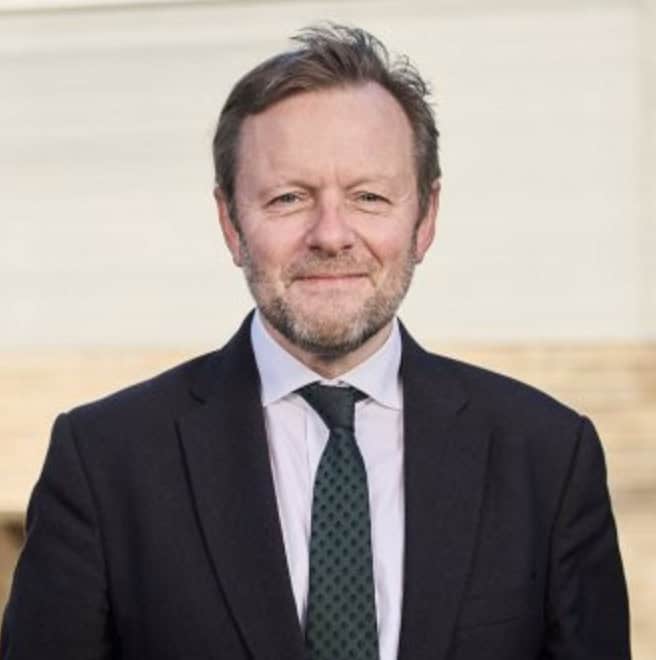2024 was the 12 months Australia doubled down on its ambition to create a stronger, fairer, and extra future-ready greater training system as it really works to implement suggestions specified by the Universities Accord.
Nevertheless, progress was overshadowed by coverage turbulence, together with the federal government’s in the end thwarted try at legislating a cap worldwide enrolments, which despatched shockwaves by way of the sector.
The cap sparked fierce debate, with universities, trade leaders, and policymakers clashing over its potential to destabilise a crucial pillar of the economic system and the upper training system.
As we transfer into 2025 – saying farewell to contentious visa processing directive Ministerial Path 107 and good day to newly carried out Ministerial Path 111 – three main specialists in greater training mirror on the previous 12 months and sit up for 2025, and past.
“Rebuilding this sector have to be a precedence,” mentioned Luke Sheehy, CEO of peak physique Universities Australia.
“By addressing obstacles and supporting worldwide training, Australia can reaffirm its standing as a prime vacation spot for world expertise. With world-class establishments and welcoming communities, we’re well-placed to strengthen the partnerships and mutual advantages that make worldwide training a cornerstone of world progress.
“The Australian Universities Accord outlines a transparent imaginative and prescient for the longer term, calling for an expanded, extra accessible and better-resourced greater training system. By 2050, universities should double the variety of home college students they educate yearly – from 900,000 as we speak to 1.8 million.”
Reaching it will require vital funding in educating, analysis, and infrastructure, defined Sheehy, alongside methods to rebuild and diversify worldwide pupil markets.
Delivering on the Accord’s imaginative and prescient requires “quick motion” to handle monetary pressures and supply stability for universities to plan and develop, and this consists of assets to broaden entry to training, enhance participation and help the sector’s crucial analysis efforts.
“These investments usually are not optionally available — they’re the muse of Australia’s financial and social future,” mentioned Sheehy.
Importantly, Australia’s universities have to be prepared and prepared to associate with the federal government, trade and communities to sort out the main challenges and alternatives forward.
Sheehy added: “Collectively, we will guarantee our nation thrives in an period of speedy technological, social, and environmental change. However this requires ambition and dedication. The query is not whether or not universities matter – it’s whether or not we’ll help them to ship. A stronger, extra sustainable Australia is dependent upon their success.”

“Australia’s greater training sector took a hammering in 2024,” mentioned Vicki Thomson, chief govt and director of the Group of Eight.
“However our universities – as they’ve all through historical past and despite political machinations – continued to ship a high-quality training to each home and worldwide college students and undertake analysis to seek out options to our largest challenges.”
The position and accountability of universities in society as we speak has by no means been extra necessary, mentioned Thomson.
“We live in altering and difficult instances. Social cohesion in Australia is in any respect time low, rising price of dwelling is including to societal pressures, and the geopolitical state of affairs is unstable.
“That universities are focused, significantly throughout election intervals is nothing new, however fortuitously in late 2024, one of many extra excessive politically motivated insurance policies to impose a blunt cap on worldwide pupil numbers was shelved, because the Coalition opposition and impartial senators introduced their intention to reject the federal government’s Invoice.”
As a federal election looms in Australia, Thomson predicts that the nation’s greater training sector will face additional coverage adjustments, probably scapegoated within the political debates round migration and price of dwelling as seen in different locations across the globe.
Wanting forward, Thomson wish to see a bipartisan Nationwide Analysis Technique to develop analysis and improvement and construct a extra resilient and dynamic economic system – “a technique that units a devoted framework to help analysis in Australia for generations to return”.
“The Australian authorities should undertake a goal to raise Australia’s R&D depth to three% of GDP by 2035,” mentioned Thomson.
“For too lengthy we’ve got operated beneath a distorted funding mannequin whereby worldwide charge income props up our nationwide college analysis effort – 70% of which takes place in Go8 Universities – and our home educating.
“If we work collectively – universities, trade and governments – to develop a funding mannequin for greater training that isn’t overly reliant on worldwide pupil charge income to fund very important analysis and educate our home college students, we will circumvent pointless and probably damaging election rhetoric and create a college sector that accelerates a affluent twenty first century fashionable Australian economic system.”

“2024 [was] an thrilling 12 months for universities in Australia. And difficult,” famous Colin B. Grant, deputy vice chancellor world, College of New South Wales.
“The Universities Accord supplied many welcome breakthroughs, whereas the subject of immigration grew to become enmeshed with proposed caps on inflows of worldwide college students who’re a significant a part of the innovation engine and cultural richness of the nation.”
Grant noticed that universities usually are not immune from the pressures of the worldwide political panorama – an important level to bear in mind as we enter 2025.
“Universities will must be ready for ongoing home political problem and alternative. They will even must navigate ongoing world uncertainty amidst looming tariff wars, shifting fault traces within the Center East, and challenges to the rules-based worldwide order.”
All of this reinforces universities position as catalysts for progress much more distinguished, he defined.
“Universities are necessary drivers of progress. They’ve a central position in empowering native communities, supporting nationwide resilience and intercultural understanding. They may stay very important bridges in native communities, nationwide resilience and worldwide understanding.”
Nevertheless, the funding mannequin for universities in developed economies has “lengthy positioned greater training in a strategic dilemma,” mentioned Grant.
“On the one hand, greater training stays a public good. On the opposite, additionally it is a benefit good the place funding for analysis is closely subsidised by fee-paying worldwide college students.
“That monetary sustainability will stay very important to realising the ambition of the Universities Accord. The Accord rightly highlights the significance of pupil success and fairness. However universities are additionally very important in powering the world-class analysis that generates new information by way of training and innovation. Extra work must be accomplished to make sure that analysis is recognised and totally funded. It’s a crucial long-term funding in nationwide and regional resilience and productiveness that may drive alternative and progress for all.
The dilemma of the hybrid funding mannequin will stay firmly in place in 2025, predicted Grant.
“There are at present no indicators that any main developed economic system will return to the longer term and fund universities by way of common taxation or different types of broader help from throughout the innovation ecosystem (eg company social accountability schemes). This actuality in flip will keep strain on universities to maximise income for future training and analysis funding. Political framing will imply that immigration stays a first-order political battleground,” mentioned Grant.
“Universities are establishments that want to stay open to the world and to native communities.”
Universities are establishments that want to stay open to the world and to native communities
Colin B. Grant, UNSW
“They construct resilience by way of that very openness and the nice and cozy welcome prolonged to all no matter background. There may be subsequently a possibility for universities to proceed to generate belief with residents, trade and political decision-makers by creating alternative for a lot of under-represented home cohorts.
“Equally, universities can obtain vital societal affect by various their supply fashions for each nationwide and worldwide cohorts. They’ll additionally discover new modes for delivering high-impact training and lifelong studying abroad.”
Grant believes that alongside the “welcome Canberra advocacy” for transnational training – the place delivering training and analysis abroad deepens belief, generates prosperity, and strengthens commerce and transparency – there’s additionally a compelling alternative for universities to collaborate extra intently with trade and companies inside Australia.
“By working extra intently collectively, universities, trade {and professional} accrediting our bodies might help open innovation and construct resilience at house and overseas,” he mentioned. “That resilience must be constructed at house by way of the facility of training and the superior analysis that informs our on a regular basis lives in areas comparable to precision healthcare, superior supplies, environmental remediation, vaccine improvement and digital empowerment.”

